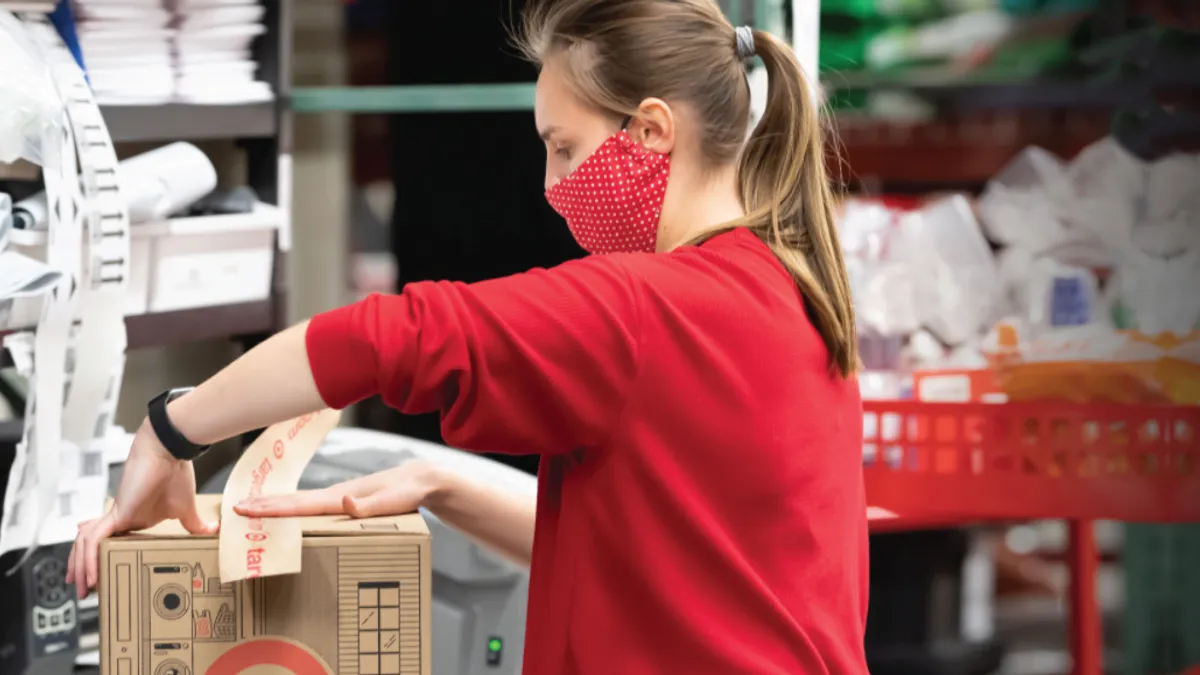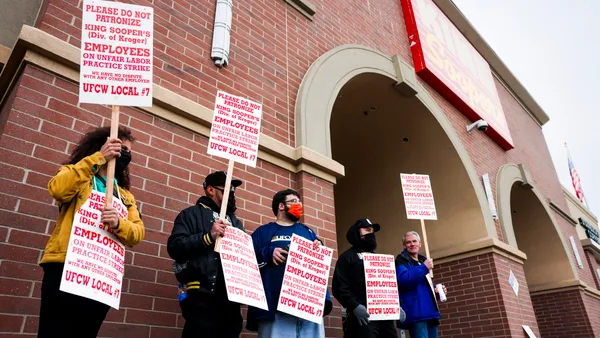Dive Brief:
- Target is giving more than 350,000 frontline workers $200 bonuses as the retailer heads into the holiday season.
- The more than $70 million to hourly workers — in stores, distribution centers and areas that support Target's guest and team member contact centers — comes on top of another round of $200 bonuses to full-time and part-time workers in July. Target also paid bonuses to store team leads in April and performance bonuses to store directors and other management members in July.
- All told, Target said it has invested nearly $1 billion this year in the "well being, health and safety of team members." That figure includes a starting minimum wage increase to $15.
Dive Insight:
The only words to describe what the 2020 holiday season looks like from here have become unavoidable cliches. Uncertain. Unprecedented.
The blunt fact is it's difficult to predict how consumers will approach physical shopping during the holiday season as the novel coronavirus continues its spread in the U.S., spiking in many states. Part of that is not knowing what the virus will do or how government will react. There are economic unknowns as well.
Target was among the essential retailers that continued to operate during the national store closures this spring. During that period the company and its peers developed a set of safety protocols meant to keep both customers and workers safe. Store workers in grocery and retail stores around the country have reportedly still contracted the disease and fallen ill, even died.
The holidays typically bring crowded, if not packed, stores. Target has tried to mitigate the typical Thanksgiving weekend rush by closing during the holiday itself and by spreading out Black Friday discounts throughout the season. Rival Walmart has gone even further, creating three separate Black Friday-like events through November (one of them falling on the actual Black Friday).
Target and Walmart are both likely to benefit from shoppers' concerns about contracting the virus in a store. Analysts expect consumers to consolidate shopping trips, which plays to Target and Walmart's broad assortment. But that could also mean more shoppers at those stores.
Walmart and Target both have occupancy limits meant to prevent the disease's spread, as well as mask requirements and other measures, but the burden of enforcing those policies — which can be stressful or even dangerous with some customers — falls on frontline workers.
An anticipated surge in online shopping could mitigate some of that foot traffic. Target is also anticipating a boost in its omnichannel services, which have exploded this year amid the pandemic. The company said in September that it planned to double seasonal hiring for its Drive Up and Order Pick Up services while holding seasonal hiring steady compared to last year's 130,000 hires. Target also plans to hire more warehouse staff for the season.
All of that signals Target's expectations about consumer preferences for convenience and safety during a fall and winter season that could bring dangerous rises in COVID-19. The retailer said it also plans to dedicate staffing to carts, foot traffic metering and handing out masks to customers.
Procedures like that are good business along with being good corporate citizenship. PwC recently reported that 65% of surveyed consumers said they were concerned about catching COVID-19. And 66% of surveyed consumers said they are more likely to visit stores with strict health precautions in place like those at Target, according to a study from the International Council of Shopping Centers.














